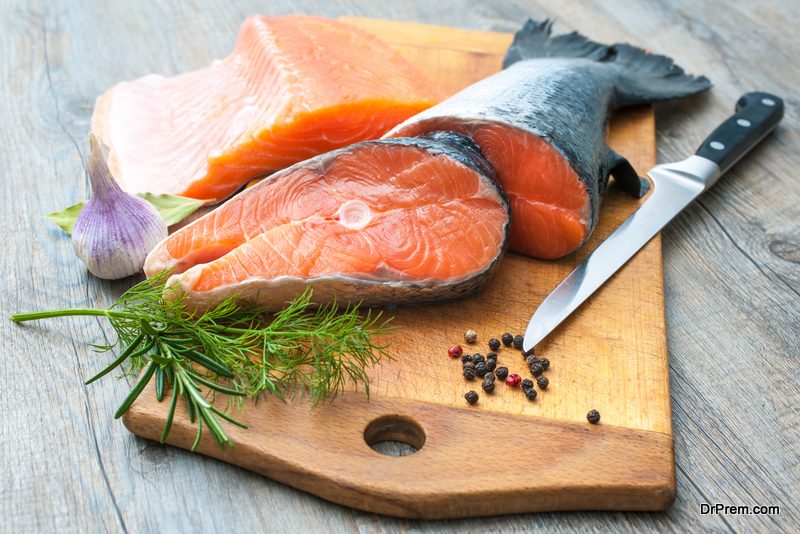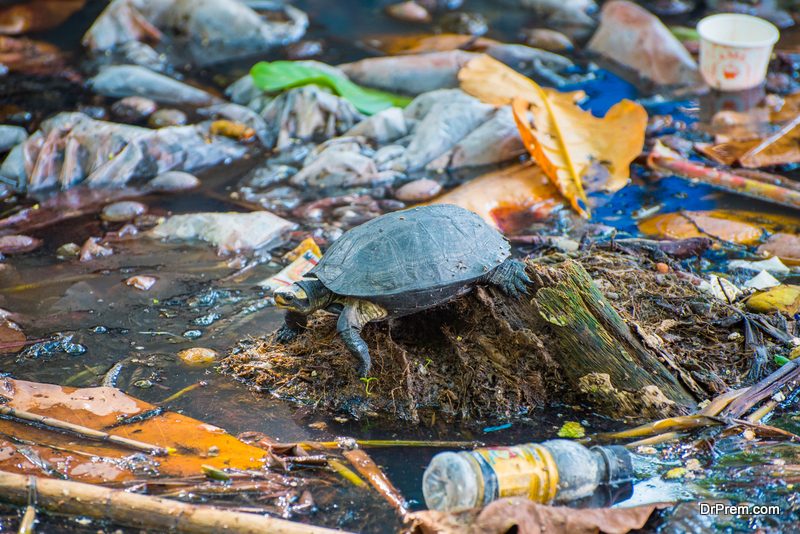Fish is considered to be good for health – especially a fatty fish like salmon. There’s hardly an article on healthy eating which does not uphold eating salmon. Before buying salmon, however, you have to know what kind of salmon it is. Experts worldwide are advising people to stay away from farmed salmon. But is wild salmon as good as they say it is? Let’s take a closer look to know to get answers to the question: Is farmed salmon toxic?
Is farmed salmon toxic?

Farmed salmon is now claimed to be one of the worst foods that you can ever consume. The toxicity in the fish is alarming and there are many farmed salmon health risks. Salmon farms are a threat to wild salmon as well as local communities who are dependent on fishing wild salmon. Genetic mutations, as well as toxic levels of chemical present in the fish, makes farmed salmon poisonous. Pregnant women and children should stay away from farmed salmon. Farmed salmon cancer-causing agent too.
What are the chemical contaminants in farmed salmon?

According to experts who have surveyed fish farms, the situation is far from healthy. The fish are fed chemical laden food, as well as a deadly cocktail of antibiotics, pesticides, and other drugs. For example, in the salmon farms of Norway, the extent of chemical use becomes obvious in the waste. Below the farms, there is a 15m high layer of refuse, filled with pesticides, bacteria, and drugs. Some dangerous contaminants which raise the question: is farmed salmon toxic? are:
The food
The favorite food of salmon in the wild is shrimp, plankton, and lots of other fish. Farmers find it tough to afford this rich diet, and hence they feed the fish pellets that are made of fishmeal, antibiotics, corn, and soybean.
Pollutants

Mercury and plastic debris are the major pollutants, which are ingested by both farmed and wild salmon. Plastic debris usually contains endocrine disruptors, which can mimic reproductive hormones and sometimes lead to mutation in fishes.
Dioxins
Farmed salmon may have POPs and dioxins, which are extremely harmful to humans and may heighten farmed salmon cancer risks. According to studies, they also weaken the immune system and cause developmental and reproductive problems. But some salmon, especially Norwegian farmed salmon, had lower levels of dioxin than wild salmon.
PCBs

PCBs are synthetic chemicals, which were used as paint and plastic additives, as well as in electrical equipment. These chemicals also caused some farmed salmon health risks.
Red Dye
The flesh of the salmon is naturally red, especially that of wild salmon, as they feed on shrimp and krill which contains astaxanthin, an ingredient that prevents aging and cancer. But the flesh of farmed salmon is grey due to their artificial diet. Thus, the farmers feed synthesized astaxanthin to the fish to make the flesh pink, as that is what consumers want.
Antibiotics

The use of antibiotics in farmed salmon spreads into humans, just as it does from other food. Not only does it spread to humans, but it is also creating antibiotic-resistant salmon genes, which are also spreading to wild salmon.
The environmental impact of farm-produced salmon
Farming of salmon is considered to be extremely harmful to the environment. Why is farmed salmon toxic to the marine environment? This is because the salmon open net cages are placed into the ocean which allows chemicals, farm waste, and parasites. Diseases are released into the water, impacting the marine ecosystem. Salmon require high protein derived from wild fish, thus leading to overfishing and depletion of wild fish globally, creating a biologically unstable system. Farmed salmon also escape from their cages, which creates another problem – that of the competition for food and habitat with wild salmon.
Sea lice are another problem which spreads from escaped farmed salmon to wild salmon. Farmers try to curb sea lice using pesticides, which is again harmful to human health. Pyrethroids is another method of controlling sea lice, but though the levels are not high in salmon, still they can be toxic to humans.
Farmed salmon has many drawbacks and can be quite harmful to humans. The synthetic chemicals used in feed pellets, antibiotics, and pesticides have been linked to Autism, ADHD, cancer, and arthritis. Though salmon farmers have cut down the number of chemicals they use (in some parts of the world), in recent years, the danger that pesticides and antibiotics pose to us is quite high. Wild salmon too are infected by sea lice, which go unchecked. So whenever you buy salmon to make that delicious fillet-of-fish you love, you should thoroughly check from where the fish has originated.


